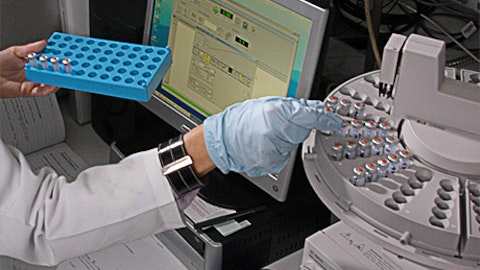During our meeting with the FDA, there was general agreement on the main elements of the Phase 3 study design for the treatment of invasive aspergillosis in patients with limited treatment options. The FDA confirmed that MAT2203 may be a candidate for the limited population pathway for antifungal and antibacterial drugs for LPAD. Labeling for drugs under the LPAD pathway can phase that the approval is based on a benefit risk assessment that more flexibly considers the severity, rarity, or prevalence of the particular infection the drug is intended to treat and the lack of alternatives available for the patient population. Under the LPAD registration and approval pathway, MAT2203 would continue to qualify for QIDP incentives under the FDA priority review and Fast-Track designation as well as orphan drug exclusivities that could allow for 12 years of exclusivity protection in the US and possibly 10 years in the EU.
MAT2203 could also potentially still be eligible for consideration for breakthrough designation. A significant discussion point during the meeting with FDA centered around the statistical assumptions regarding the primary endpoint for the Phase 3 study in a non-inferiority trial design. Particularly, important was having the FDA spontaneously expressed openness to an alternative superiority composite endpoint. One proposal we are considering for a composite endpoint includes therapeutic success, consisting of mortality, partial or complete global response, and the ability to complete study treatment with no discontinuations or changes in dosing due to adverse events at day 42 that are treatment related. We believe that with this new composite superiority endpoint, MAT2203 could be optimally positioned for favorable regulatory and commercial outcome given the clinical data that has been generated to date in our Compassionate Use Program as well as the clinical experience from our completed EnACT trial.
The study protocol with the new composite endpoint is being finalized and will be submitted to FDA for alignment in the final — in the next few weeks. The company believes that a superiority composite endpoint would not change the projected study size, which we believe will be less than 200 patients or enrollment timeline, which we believe could be 22 to 24 months. Given the substantially better safety profile of our oral MAT2203 compared with IV-administered amphotericin B seen to-date, including the rate of toxicity seen with IV-administered amphotericin B in the published literature. The FDA has communicated its commitment to work with Matinas on an off-cycle basis to finalize the Phase 3 protocol as soon as possible. Overall, the positive outcome of our meeting with the agency was driven by FDA’s desire to put forth the best possible study design position for regulatory and commercial success with a goal of ultimately making MAT2203 widely available to patients.
We are confident that FDA stands on this design puts us or a partner in a position of strength to launch our product with a much stronger label which can also be built upon during the subsequent life cycle of this product. An optimal initial label at launch, not unexpectedly, has increased partner interest in this asset. Given that we plan on addressing the highest need patients, most of whom have limited or no treatment options, we believe that our case for BARDA to assist with the funding of further clinical development of MAT2203 is quite strong. We are preparing a white paper and anticipate submitting this to BARDA following alignment with the FDA on our Phase 3 program. The challenge with BARDA and any nondilutive government funding can be the process and associated time lines for making a decision in funding an award.
However, we remain hopeful that the compelling unmet need in this patient population might accelerate this process. Circling back to our Compassionate Use/Expanded Access Program. Since instituting this program over a year ago, we have received inbound requests from physicians at the NIH University of Michigan, Nationwide Children’s Hospital, and Johns Hopkins, amongst others. They’ve contacted us on behalf of patients who have experienced significant renal toxicity, while receiving IV amphotericin B and/or have not responded to or are unable to tolerate azoles or other classes of antifungals. A total of 12 patients have been enrolled in this program to date. In October, we announced that a 61-year-old male with a challenging medical history, achieved complete clinical resolution of Candida krusei infection following only two weeks of treatment with MAT2203.
